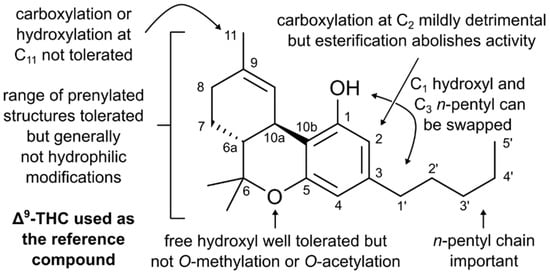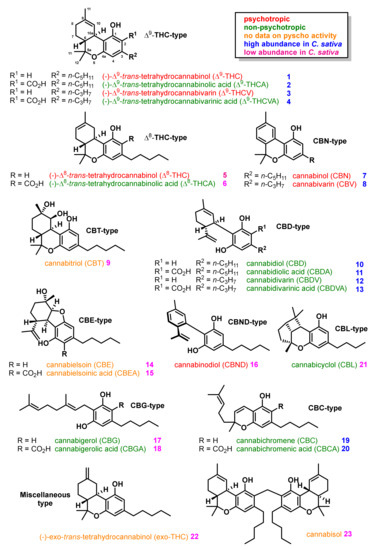 “During the last decades, researchers have investigated the functional relevance of adult hippocampal neurogenesis in normal brain function as well as in the pathogenesis of diverse psychiatric conditions.
“During the last decades, researchers have investigated the functional relevance of adult hippocampal neurogenesis in normal brain function as well as in the pathogenesis of diverse psychiatric conditions.
Although the underlying mechanisms of newborn neuron differentiation and circuit integration have yet to be fully elucidated, considerable evidence suggests that the endocannabinoid system plays a pivotal role throughout the processes of adult neurogenesis. Thus, synthetic, and natural cannabinoid compounds targeting the endocannabinoid system have been utilized to modulate the proliferation and survival of neural progenitor cells and immature neurons.
Cannabidiol (CBD), a constituent of the Cannabis Sativa plant, interacts with the endocannabinoid system by inhibiting fatty acid amide hydrolase (FAAH) activity (the rate-limiting enzyme for anandamide hydrolysis), allosterically modulating CB1 and CB2 receptors, and activating components of the “extended endocannabinoid system.” Congruently, CBD has shown prominent pro-neurogenic effects, and, unlike Δ9-tetrahydrocannabinol, it has the advantage of being devoid of psychotomimetic effects.
Here, we first review pre-clinical studies supporting the facilitating effects of CBD on adult hippocampal neurogenesis and available data disclosing cannabinoid mechanisms by which CBD can induce neural proliferation and differentiation. We then review the respective implications for its neuroprotective, anxiolytic, anti-depressant, and anti-reward actions.
In conclusion, accumulating evidence reveals that, in rodents, adult neurogenesis is key to understand the behavioral manifestation of symptomatology related to different mental disorders. Hence, understanding how CBD promotes adult neurogenesis in rodents could shed light upon translational therapeutic strategies aimed to ameliorate psychiatric symptomatology dependent on hippocampal function in humans.”
https://pubmed.ncbi.nlm.nih.gov/32676014/
https://www.frontiersin.org/articles/10.3389/fnbeh.2020.00109/full

 “New neuroprotective treatments of natural origin are being investigated. Both, plant extracts and isolated compounds have shown bioactive effects.
“New neuroprotective treatments of natural origin are being investigated. Both, plant extracts and isolated compounds have shown bioactive effects.
 “Thirty years ago, the discovery of a cannabinoid (CB) receptor that interacts with the psychoactive compound in Cannabis led to the identification of anandamide, an endogenous receptor ligand or endocannabinoid. Research on endocannabinoids has since exploded, and additional receptors along with their lipid mediators and signaling pathways continue to be revealed. Specifically, in humans, the release of endocannabinoids from membrane lipids occurs on demand and the signaling process is rapidly attenuated by the breakdown of the ligand suggesting a tight regulation of the endocannabinoid system (ECS). Additionally, the varying distribution of CB receptors between the central nervous system and other tissues allows for the ECS to participate in a wide range of cognitive and physiological processes. Select plant-derived ‘phyto’cannabinoids such as Δ-9-tetrahydrocannabinol (Δ9-THC) bind to the CB receptors and trigger the ECS, and in the case of Δ9-THC, while it has therapeutic value, can also produce detrimental effects. Current research is aimed at the identification of additional phytocannabinoids with minimal psychotropic effects with potential for therapeutic development. Although decades of research on the ECS and its components have expanded our understanding of the mechanisms and implications of endocannabinoid signaling in mammals, it continues to evolve. Here, we provide a brief overview of the ECS and its overlap with other related lipid-mediated signaling pathways.”
“Thirty years ago, the discovery of a cannabinoid (CB) receptor that interacts with the psychoactive compound in Cannabis led to the identification of anandamide, an endogenous receptor ligand or endocannabinoid. Research on endocannabinoids has since exploded, and additional receptors along with their lipid mediators and signaling pathways continue to be revealed. Specifically, in humans, the release of endocannabinoids from membrane lipids occurs on demand and the signaling process is rapidly attenuated by the breakdown of the ligand suggesting a tight regulation of the endocannabinoid system (ECS). Additionally, the varying distribution of CB receptors between the central nervous system and other tissues allows for the ECS to participate in a wide range of cognitive and physiological processes. Select plant-derived ‘phyto’cannabinoids such as Δ-9-tetrahydrocannabinol (Δ9-THC) bind to the CB receptors and trigger the ECS, and in the case of Δ9-THC, while it has therapeutic value, can also produce detrimental effects. Current research is aimed at the identification of additional phytocannabinoids with minimal psychotropic effects with potential for therapeutic development. Although decades of research on the ECS and its components have expanded our understanding of the mechanisms and implications of endocannabinoid signaling in mammals, it continues to evolve. Here, we provide a brief overview of the ECS and its overlap with other related lipid-mediated signaling pathways.”
 “Methamphetamine (METH) is a highly addictive psychostimulant.
“Methamphetamine (METH) is a highly addictive psychostimulant. “The compounds present in cannabis have been in use for both recreational and medicinal purposes for many centuries. Changes in the legislation in South Africa have led to an increase in the number of people interested in using these compounds for self-medication. Many of them may approach their general practitioner as the first source of information about possible therapeutic effects. It is important that medical professionals are able to give patients the correct information. Cannabidiol (CBD) is one of the main compounds in cannabis plants, and there is evidence that it can successfully treat certain patients with epilepsy. This review looks at the most recent evidence on the use of CBD in the treatment of epilepsy and explores the mechanisms behind these beneficial effects.”
“The compounds present in cannabis have been in use for both recreational and medicinal purposes for many centuries. Changes in the legislation in South Africa have led to an increase in the number of people interested in using these compounds for self-medication. Many of them may approach their general practitioner as the first source of information about possible therapeutic effects. It is important that medical professionals are able to give patients the correct information. Cannabidiol (CBD) is one of the main compounds in cannabis plants, and there is evidence that it can successfully treat certain patients with epilepsy. This review looks at the most recent evidence on the use of CBD in the treatment of epilepsy and explores the mechanisms behind these beneficial effects.” “In this study, we report the potential of cannabidiol, one of the major cannabis constituents, for enhancing osteoblastic differentiation in U2OS and MG-63 cells.
“In this study, we report the potential of cannabidiol, one of the major cannabis constituents, for enhancing osteoblastic differentiation in U2OS and MG-63 cells. “Highly purified cannabidiol (CBD) (approved as Epidiolex® in the United States) has demonstrated efficacy with an acceptable safety profile in patients with Lennox-Gastaut or Dravet syndrome in four randomized controlled trials. CBD possesses affinity for many target classes with functional effects relevant to the pathophysiology of many disease types, including epilepsy.
“Highly purified cannabidiol (CBD) (approved as Epidiolex® in the United States) has demonstrated efficacy with an acceptable safety profile in patients with Lennox-Gastaut or Dravet syndrome in four randomized controlled trials. CBD possesses affinity for many target classes with functional effects relevant to the pathophysiology of many disease types, including epilepsy. “A post-antibiotic world is fast becoming a reality, given the rapid emergence of pathogens that are resistant to current drugs. Therefore, there is an urgent need to discover new classes of potent antimicrobial agents with novel modes of action.
“A post-antibiotic world is fast becoming a reality, given the rapid emergence of pathogens that are resistant to current drugs. Therefore, there is an urgent need to discover new classes of potent antimicrobial agents with novel modes of action.

 “HIV/SIV-associated oral mucosal disease/dysfunction (HAOMD) (gingivitis/periodontitis/salivary adenitis) represents a major comorbidity affecting HIV patients on anti-retroviral therapy.
“HIV/SIV-associated oral mucosal disease/dysfunction (HAOMD) (gingivitis/periodontitis/salivary adenitis) represents a major comorbidity affecting HIV patients on anti-retroviral therapy.